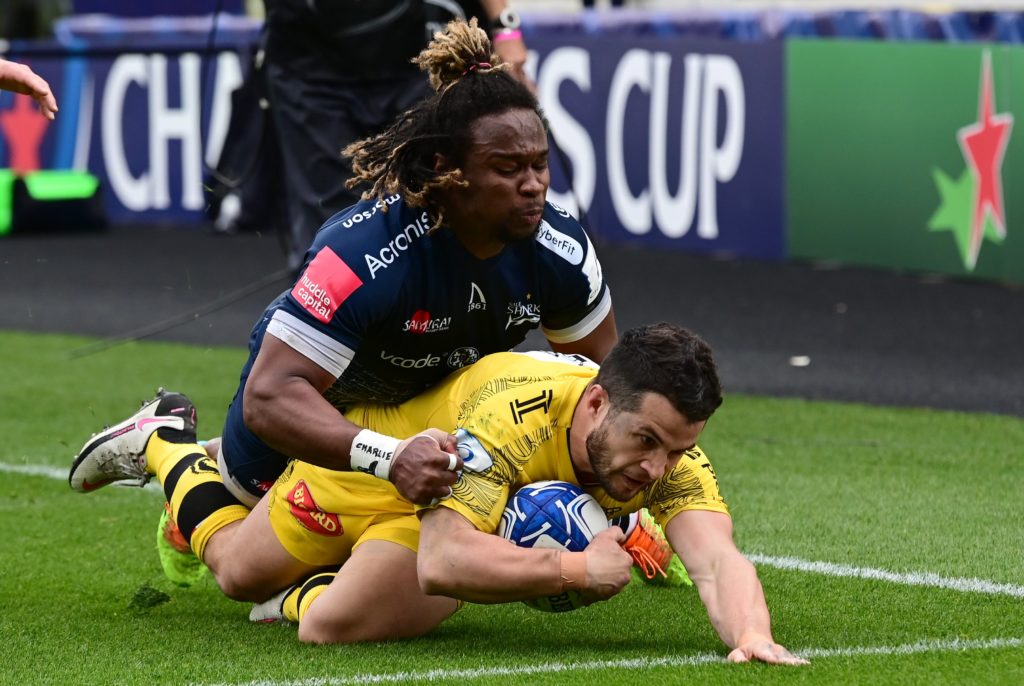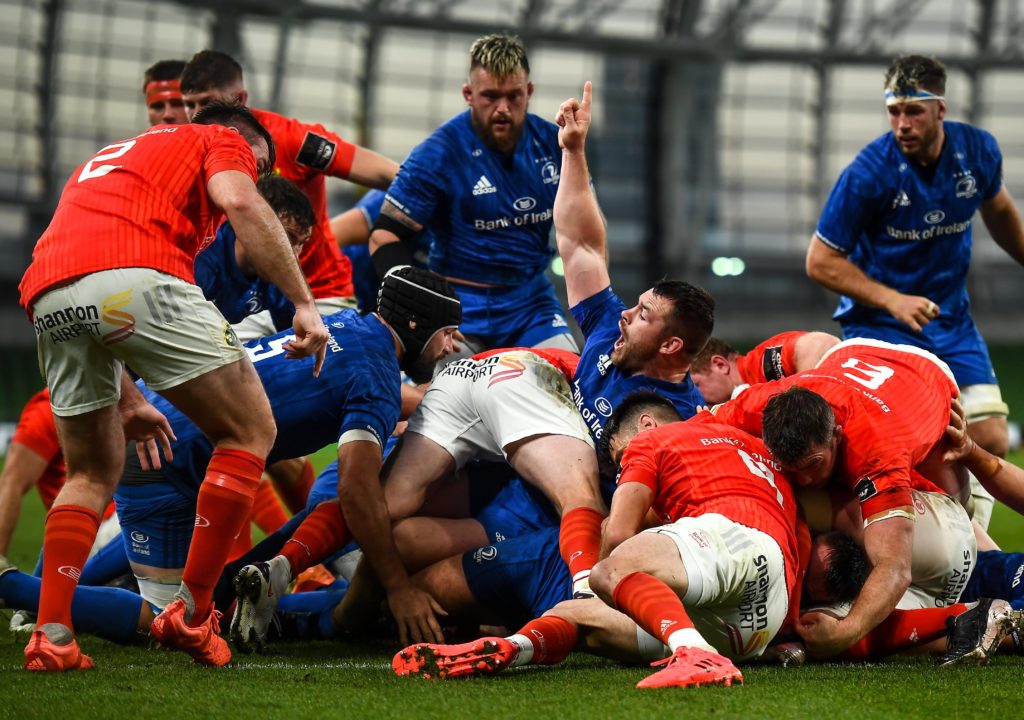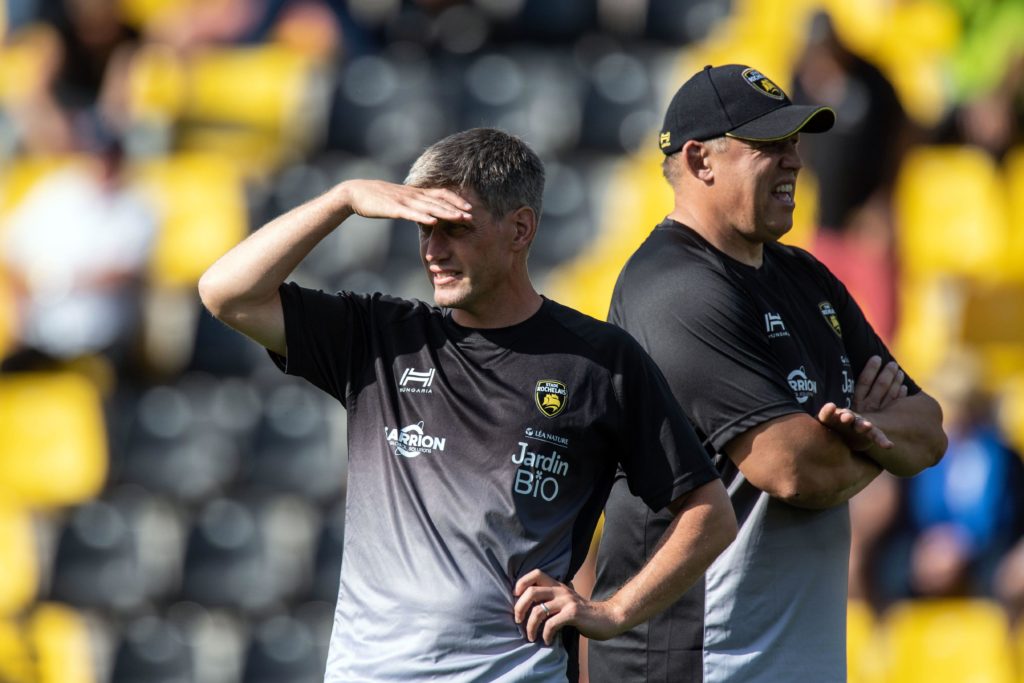The adoption of ‘fortress’ to characterise the apparent invincibility of rugby teams on their home patch is a tired cliché. Except in France where, as if to reinforce l’esprit de clocher – a colloquialism that draws on the myth that all born within the sound of the town’s church bells are duty-bound to protect it – rugby grounds have a tendency to be named in memory of war heroes. Men like athlete Jean Bouin, whose world record-breaking feats on the track captured the Parisian imagination in 1913, and fly-half Aimé Giral, whose late score in the following year’s French Championship final clinched Perpignan their first title. Those achievements sealed sporting reputations but it was their deaths just months later that catapulted them to hero status. Both died wearing military uniform fighting for their country in The Great War.
Both Bouin’s and Giral’s are great tales yet neither comes close to epitomising the genre than that of Marcel Deflandre.
In 1940, La Rochelle’s geography made it a vital strategic location for Germany’s occupying forces and a submarine base was built in the harbour soon after the Nazis’ unwelcome arrival on the Atlantic coast. Deflandre, a fortysomething director of a local refinery, was the rugby club’s president when the Wehrmacht overran France in the early months of World War II.
La Rochelle’s occupation years were to span virtually the entire war. Indeed, it was the last French city to be liberated. Deflandre’s factory was confiscated by the Germans soon after their arrival and the qualified engineer and rugby administrator soon turned to undermining the occupying force’s cause.
Twenty years ago, there was just a single, modest ‘tribune’, which ran two-thirds of the length of one side of the pitch. Travel there now, and it’s closed in on all four sides with a tightly-packed, football-ground feel.
Fans of the film and more recently produced TV drama series Das Boot will be familiar with the role played during the war years by the French locals’ own awkward squad, La Résistance. Deflandre was among the brave souls to join them. His office overlooking the harbour allowed him to monitor movements of boats and submarines as they sailed into the Bay of Biscay, while his expertise in the fuel industry saw him become a senior commander in the Résistance. But the Germans were ruthless in the treatment of those trying to frustrate their war effort. In 1943, Deflandre was arrested on suspicion of “helping the enemy”. He was charged, tried and, early the following year, executed by firing squad.
In 1947, the Stade Municipal de Port-Neuf was renamed the Stade Marcel Deflandre. And it has remained so ever since, though it is only in the last decade that it has started to look anything like a major club ground. Twenty years ago, there was just a single, modest ‘tribune’, which ran two-thirds of the length of one side of the pitch. Travel there now, and it’s closed in on all four sides with a tightly-packed, football-ground feel.

What allowed the expansion is the club’s emergence during the professional era from a second-tier club to one who have now firmly established themselves in the Top 14. Yet even 11 years ago, that hadn’t seemed possible. In 2010, La Rochelle beat Lyon 32-26 in the second division play-off final to earn a place in the Top 14. The same year, club president Vincent Merling (La Rochelle-born, former player and successful entrepreneur) launched the “Growing Together 2015” campaign. The message it delivered to both the city’s people and French club rugby was that La Rochelle were serious about competing with the big cities and their clubs’ budgets.
In recent years, top-flight French rugby has seen its epicentre shift from the traditional rugby towns of the South-West and to the big cities. La Rochelle buck this trend.
The 16,000-capacity stadium was built, the club’s training facilities beefed up and a pledge made to produce their own talent within their academy. Promotion, though, was immediately followed by relegation. Three seasons later, with lessons learnt, they returned to the big time. Merling had armed his management with a bulked-up war chest and a long-term plan.
In recent years, top-flight French rugby has seen its epicentre shift from the traditional rugby towns of the South-West and to the big cities. Small-town clubs, such as current French champions Castres (albeit bankrolled by a huge legacy from their late benefactor) and La Rochelle buck this trend.

Despite the economic disparities, clubs like those two can still go toe to toe with the big boys, armed not with fat chequebooks and 30million euro budgets but l’esprit de clocher.
La Rochelle has a population roughly the same as Carlisle’s but the club go into normal seasons with more than 13,000 season-ticket holders. They have sold out for virtually every home league game for the past five years.
Jono Gibbes, in the company of able assistant and KBA (Keep the Ball Alive) preacher Ronan O’Gara, have worked wonders at La Rochelle.
Yet there is still a sense that all the big-city clubs have to do to prise away the eye-catching names is to click their fingers and wave a fat wad. And that has happened even now with the club challenging for both European and domestic honours. Last week, it was confirmed the man who has guided them there, Jono Gibbes, is heading for a so-called ‘bigger club’.
Gibbes, in the company of able assistant and KBA (Keep the Ball Alive) preacher Ronan O’Gara, have worked wonders at La Rochelle. Yet it’s the chorus of the Yellow Army and the rubber millions of Michelin that have lured Gibbes inland from the Atlantic Coast to the volcanic suburb of Montferrand and Clermont Auvergne. Meanwhile, ‘ROG’ has been elevated to No1 at La Rochelle and agreed a new three-year deal. In all honesty, it’s an outcome that probably suits both clubs.
Gibbes will want to depart the Bay of Biscay with a flourish. Having had their scheduled Top 14 trip to Brive postponed, La Rochelle go fresh into the weekend’s Champions Cup semi-final at home to Leinster with a fighting chance of making the final. And even if they don’t, they will refocus on their Top 14 campaign, which sees them so well placed that they can already start tapering their efforts so as to build up to a physical and mental peak for the play-off weeks in June.

La Rochelle’s is a brand of civic pride that puffs out chests and has grown men’s eyes welling up. Do not confuse it with the hackneyed peck-on-the-badge stuff preferred in another footballing code; rugby players in La Rochelle are inspired by tales of heroism, the vestiges of which hang in frames on walls and on the nameplates of streets, public parks and sports grounds. The club’s training ground is at the Plaine des Jeux Colette Besson, a facility named in memory of the great French 400metres runner who pipped Great Britain’s Lillian Board to the Olympic title in Mexico City 53 years ago.
Rugby stars of yesteryear are thin on the ground in La Rochelle. They have no equivalent of Martin Johnson at Leicester; Lawrence Dallaglio at Wasps or Yannick Jauzion in Toulouse. Instead, they do dynasties. La Rochelle’s most famous rugby family is probably the Elissaldes – the late Arnaud, a player and then first-team coach, is an emblematic figure; his son Jean-Pierre played for France and also coached, while grandson Jean-Baptiste, also a France international, started his rugby career there before making his name at Toulouse, where he played in three Heineken Cup finals, winning one of them against Stade Français at Murrayfield in 2005.
Many sports teams on our side of La Manche sell the naming rights of their home grounds to insurance firms, wealth management companies, photocopiers, betting shops and even crisps salesmen. In France, typically, things are different. La Rochelle certainly don’t shy away from commercialism. Tickets aren’t cheap; sponsorships are sold, and the haute cuisine in the main tribune’s restaurant does a roaring trade. But some things, like its stadium’s name, remain pure. La Rochelle’s ‘fortress’ carries too high a price to be hawked around. It’s part of the club’s mystique. And it’s why Leinster will have to play very well this weekend to scale its ramparts.
More French rugby stories
If you’ve enjoyed this article, please share it with friends or on social media. We rely solely on new subscribers to fund high-quality journalism and appreciate you sharing this so we can continue to grow, produce more quality content and support our writers.



Comments
Join free and tell us what you really think!
Sign up for free